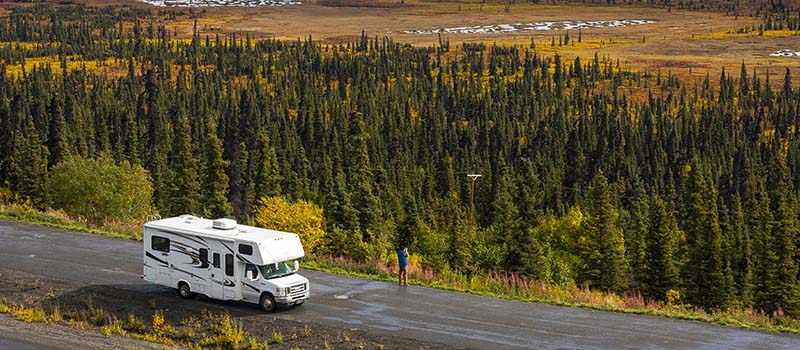What Type Of RV Insurance Do I Need For My Next Trip?
What Type Of RV Insurance Do I Need For My Next Trip?

What Type Of RV Insurance Do I Need For My Next Trip?
Consider Which States You’re Planning to Visit
Although you might have the coverage required for your particular state, you’ll want to check carefully to make sure that the same laws apply to the states you’ll be traveling through or visiting. In certain states, larger coverage limits are required, and you won’t want to be caught with insufficient coverage in the event of an accident. Generally speaking, it’s best to get the greatest amount of liability for all the states you’ll be driving through on your trip. To make sure you have enough coverage, contact your local agent for details, and be sure to have your trip information handy when you speak to them.
Additional Coverages
If you’re planning a trip on a busy highway, are planning to camp in a remote area of the wilderness, or have a lot of valuable custom equipment that you want to be sure is protected, added coverage might be a safe option for you.
- Medical payments coverage – this coverage pays for injuries to anyone in the RV, no matter who was at fault during the accident. If you are traveling with a larger group of family or friends, this is especially important to consider.
- Vacation liability coverage – this coverage helps pay for property damage or bodily injury when your RV is parked and used as a vacation residence, not while the RV is being driven from place to place. For example, if a tree branch falls on your RV during a storm while you’re parked at a camp site, this would be a useful coverage to have.
- Personal effects coverage – this coverage protects your belongings from damage or theft, should such an event occur in your RV. You may have some coverage under your homeowners insurance policy, but this additional coverage can help ensure that you won’t have high replacement costs in the event that your expensive items are stolen or destroyed.
RV Rental Insurance
If you do not own an RV, and instead decide to rent one for your trip, you’ll definitely want to make sure you have adequate coverage. In many cases, rental companies require that you purchase short-term insurance. You may also be able to transfer your auto insurance to an RV rental through an auto insurance broadening clause. These coverages can vary from state to state, so be sure to ask your local agent if this might be an option for you, or if you would want to consider purchasing additional coverage before your trip.
Consult Your Local Agent
No matter what your destination may be, you want to make sure you can protect yourself, your loved ones and your belongings. If you’re planning a trip in the near future, reach out to your local agent to discuss whether additional coverage might be right for you. They’ll work with you to make sure you’re covered in all of the states you’re visiting, no matter what your plans may be.
